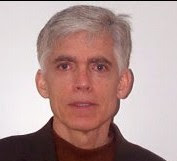The issue of evidence is always present when writing and talking about reincarnation and the soul. Today I will explore this. As a man trained in science and engineering, I am acquainted with the scientific method: the dominant method for proving “truths” in our world. It works well for the physical sciences and only so-so for the medical sciences. Here is a brief summary of the scientific method (from Wikipedia (2-14-09).
Scientific method refers to bodies of techniques for investigating phenomena, acquiring new knowledge, or correcting and integrating previous knowledge. To be termed scientific, a method of inquiry must be based on gathering observable, empirical and measurable evidence subject to specific principles of reasoning. A scientific method consists of the collection of data through observation and experimentation, and the formulation and testing of hypotheses. … Scientific researchers propose hypotheses as explanations of phenomena, and design experimental studies to test these hypotheses. These steps must be repeatable in order to dependably predict any future results.
An implicit assumption relative to the empirical and measurable element in almost all scientific investigations is that the observing does not affect the experiment. In human and social behavior it is difficult to achieve this condition because we as human are influenced by our beliefs: if you believe something, you will tend to “see” or “find” evidence supporting the belief. This is very prominent in “scientific” tests of how well a new drug works to “cure” particular physical symptoms. Because of the power of human beliefs, medical researchers have to use “double-blind” methods where one group of research subjects is given the new drug and the second is given a “placebo” (a benign substance/technique that is said to be the drug). In the “double-blind” approach, both the subject and the medical person dispensing the drug believe that it is the real thing. I remember reading a medical research critique on the use of angiogram to improve symptoms of heart discomfort. With the actual angiogram use, 50% of the patients “felt” an improvement in their conditions. Interestingly, 40% of those given the placebo “felt” an improvement. Not much different.
So, what does that have to do with evidence for reincarnation and the soul? It means those of us who believe will find evidence to support our position and those who don’t believe will find the opposite. We are already predisposed to an answer. What can be done with this situation?
My efforts to close this divide have focused on creating “good” information that can be considered as evidence. For this I am using two filters: (1) limiting information to that from “quality” sources that provide a “density of information [evidence] and (2) checking for repeatability and predictability. I have been working with these two filters for some time. Let me focus on the quality and density of evidence filter first. In practice I have put these two together in selecting information sources and gathering evidence: I am only using sources that can provide a large quantity of “quality” information on the subject. Density means that the source has all or most of the following: book(s) covering many aspects/experiences relative to the subject, active website with significant information, and other sources (e.g., academic research paper, magazine article, and audio readings for channeling source).
My quality filter is an integrative, time moving filter that gets feedback from checks on the repeatability, or consistency, of information from the different sources. That is, I have a moving and expanding set of what I consider to be supportable information on the subject. In my next Blog I will summarize my top sources that I have been using. Any new source added to provide evidence for my database must have significant overlap with what I currently have as valid or open hypotheses.
For repeatability and predictability, I have adapted key criteria from the scientific method. My key criteria are:
• Repeatability. We must have the same information from more than one source: a minimum of at least three or four and desirably eight to ten. With this test, I have been able to build up a body of reliable information in which I have good confidence.
• Prediction. The information must be valid: consistent with other sources of spiritually related information that have demonstrated repeatability.
My current focus has been limited to the repeatability criteria. Using it I have created a set of hypotheses that I have “tested” out with my quality sources. Let me give an example. My hypothesis was the following: “Spiritual guides (other souls) and a human soul’s higher self (their full soul) are the source of inspiration and guidance for humans, not direct communication from God.”
When I initially tested this in the fall of 2006, I had eight quality sources. I found information in all of the sources that agreed with my hypothesis, though in one of the sources there was some confusion as to whether it as the soul’s higher self, God or both. With seven to eight positive responses there is enough information to perform a statistical test for significance on this hypothesis.
I have not been able to follow up yet on the prediction criteria. An example of applying this would be to take hypotheses on the nature of the death transition that passed my repeatability test and see if it is consistent with the vast literature on near-death experiences that have been studied in great depth by many medical doctors. Another example is the literature on memories of children of their previous lives that could be “verified” because key family members are still living. These have been studied in great depth by many trained observers (e.g., psychiatrists). There might be a hypothesis that could be tested here.
Copywright by Douglas Kinney
Subscribe to:
Post Comments (Atom)

1 comment:
Thoughtful Post indeed.
Ther is more on reincarnation in my blog at
http://someitemshave.blogspot.com
Post a Comment